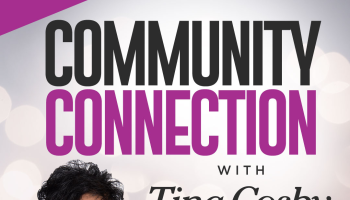Now that President Barack Obama has won a second term, the stories are starting to merge about what was happening behind the scenes in the campaign. The New York Times has published a fascinating behind the scenes account of some crucial moments in the campaign. Including what happened to the President in that first debate? Why was his performance so lackluster? Here’s some excepts from the NY Times story, which was written by Times Reporters Adam Nagourney, Ashley Parker, Jim Rutenberg and Jeff Zeleny with contributions from Michael Barbaro, Michael D. Shear and Peter Baker.
Seven minutes into the first presidential debate, the mood turned from tense to grim inside the room at the University of Denver where Obama staff members were following the encounter. Top aides monitoring focus groups — voters who registered their minute-by-minute reactions with the turn of a dial — watched as enthusiasm for Mitt Romney spiked. “We are getting bombed on Twitter,” announced Stephanie Cutter, a deputy campaign manager, while tracking the early postings by political analysts and journalists whom the Obama campaign viewed as critical in setting debate perceptions.
By the time President Obama had waded through a convoluted answer about health care — “He’s not mentioning voucher-care?” someone called out — a pall had fallen over the room. When the president closed by declaring, “This was a terrific debate,” his re-election team grimaced. There was the obligatory huddle to discuss how to explain his performance to the nation, and then a moment of paralysis: No one wanted to go to the spin room and speak with reporters.
The Oct. 3 debate sharply exposed Mr. Obama’s vulnerabilities and forced the president and his advisers to work to reclaim the campaign over a grueling 30 days, ending with his triumph on Tuesday. After a summer of growing confidence, Mr. Obama suddenly confronted the possibility of a loss that would diminish his legacy and threaten his signature achievement, the health care law. He emerged newly combative, newly contrite and newly willing to recognize how his disdain for Mr. Romney had blinded him to his opponent’s strengths and ability to inflict damage.
After watching a videotape of his debate performance, Mr. Obama began calling panicked donors and supporters to reassure them he would do better. “This is on me,” the president said, again and again.
Mr. Obama, who had dismissed warnings about being caught off guard in the debate, told his advisers that he would now accept and deploy the prewritten attack lines that he had sniffed at earlier. “If I give up a couple of points of likability and come across as snarky, so be it,” Mr. Obama told his staff.
Mr. Obama recognized that to a certain extent, he had walked into a trap that Mr. Romney’s advisers had anticipated: His antipathy toward Mr. Romney — which advisers described as deeper than what Mr. Obama had felt for John McCain in 2008 — led the incumbent to underestimate his opponent as he began moving to the center before the debate audience of millions of television viewers.
(Romney advisers) argued that Mr. Obama’s dislike of Mr. Romney would lead the president to underestimate him. “They think there’s something intellectually inferior there,” he said later. Mr. Romney’s advisers also believed that Mr. Obama had demonized Mr. Romney to such an extent that their candidate would benefit when judged against the caricature.
In August, Mr. Romney began testing out one-liners on friends flying with him on his campaign plane. On issue after issue, Mr. Romney led discussions on how to frame his answers, to move away from the conservative tone of his primary contests in front of the largest audience he would have as a candidate.
Senator Rob Portman of Ohio was recruited to play Mr. Obama, and he embraced the role, even anticipating how the president would open his first debate, which fell on his wedding anniversary. “I’ve got to tell you, tonight’s a really special night,” Mr. Portman said, playing Mr. Obama. “I see my sweetie out there, boy, 20 years ago.”
(Mr. Romney’s advisers broke out in laughter when the real Mr. Obama opened with a similar line, and nodded approvingly when a very prepared Mr. Romney countered with a gracious response that even Democrats said put Mr. Obama off balance.)
Democrats advising Mr. Obama saw the same peril for the president in the first debate that Mr. Romney’s aides did. Ronald A. Klain, a Democratic strategist who has overseen debate preparation for presidential candidates for nearly 20 years, warned Mr. Obama at his very first debate session, a PowerPoint presentation in the Roosevelt Room on a sweltering day in mid-July, that incumbent presidents almost invariably lose their first debate.
Mr. Obama displayed little concern. When he went to a resort outside Las Vegas for several days of debate preparation in September, his impatience with the exercise was evident when he escaped for an excursion to the Hoover Dam.
Mr. Klain and David Axelrod, a senior strategist, told Mr. Obama that he seemed distracted, but he shrugged them off. “I’ll be there on game day,” he said. “I’m a game day player.”
Shortly after the debate began, Mr. Obama’s aides realized they had made their own mistakes in advising Mr. Obama to avoid combative exchanges that might sacrifice the good will many Americans felt toward him. In Mr. Obama’s mock debates with Senator John Kerry, a Massachusetts Democrat, Mr. Kerry drew Mr. Obama into a series of intense exchanges, and Mr. Axelrod decided that they were damaging to the president.
In 90 minutes, Mr. Obama crystallized what had been gnawing concerns among many Americans about the president. He came across, as Mr. Obama’s advisers told him over the next few days, as professorial, arrogant, entitled and detached from the turmoil tearing the nation. He appeared to be disdainful not only of his opponent but also of the political process itself. Mr. Obama showed no passion for the job, and allowed Mr. Romney to explode the characterization of him as a wealthy, job-destroying venture capitalist that the Obama campaign had spent months creating.
After the debate, Mr. Obama called Mr. Axelrod on his way back to the hotel room. He had read the early reviews on his iPad.
“I guess the consensus is that we didn’t have a very good night,” Mr. Obama told Mr. Axelrod.
“That is the consensus,” Mr. Axelrod said.
Click Below to Read the Full NY Times Story













